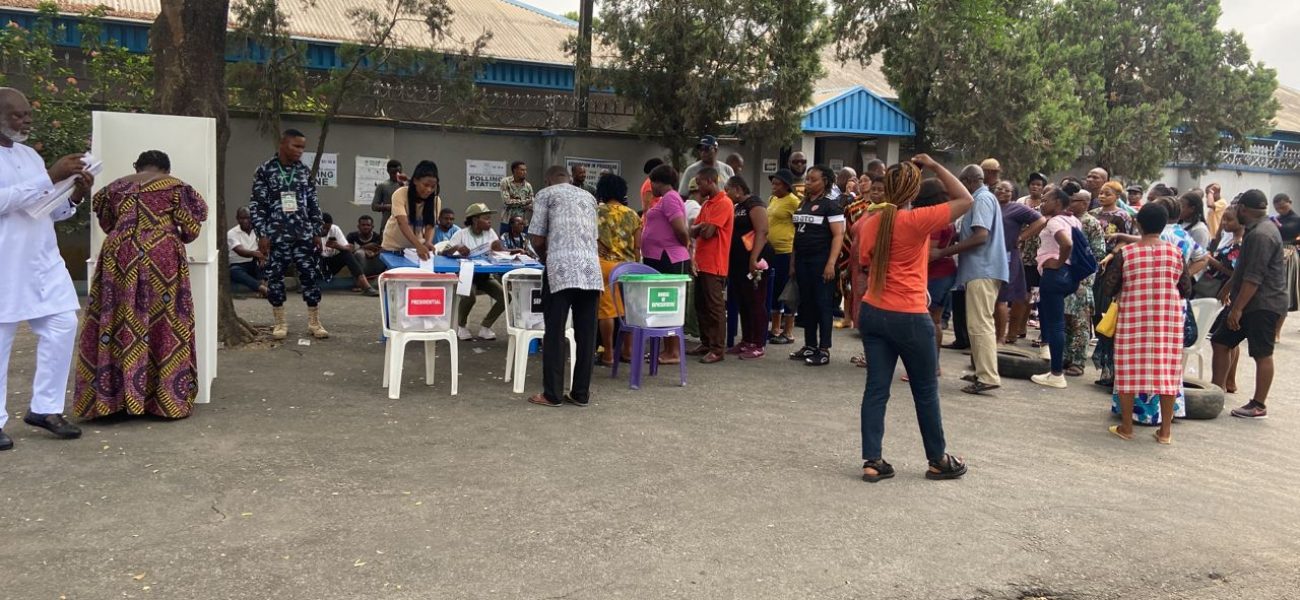Nigeria’s 2023 Presidential and National Assembly elections which held on February 25, 2023 is being equated with the disastrous 2007 general elections. The 2007 elections were described by Nigerians and international observers as disastrous. The 2023 general election is being described in similar vein, with allegations of vote rigging, incompetence of election management and officials and sever logistical failures. According to the Nigeria Civil Society Situation Room, the election was marred by very poor organisation, severe logistical and operational failure, lack of essential transparency, substantial disruption of voting and several incidents of violence.
Several other Nigerian observer groups have described the election in similar light. Also, international observers have not pulled punches in calling the election for what it is. The joint observer delegation of the National Democratic Institute and the international Republican Institute (NDI/IRI), both of the United States noted that despite the much-needed reforms to the electoral legal framework, the election fell well short of Nigerian citizens’ reasonable expectations. In addition, logistical challenges and multiple incidents of political violence overshadowed the electoral process and impeded a substantial number of voters from participating. The European Union was not any less harsh in its criticism of the election. The European Union which deployed one of the largest delegation of observers, stated that, the Independent National Electoral Commission (INEC) lacked efficient planning and transparency during critical stages of the electoral process and trust in the Commission was seen to further reduce on election day as a result of delayed polling processes and information gaps related to much anticipated access to INEC’s Results Viewing Portal (IReV).
Specific failures identified include large scale failure to open polls at the prescribed time of 8:30 am. Even in polling units within Nigeria’s Federal Capital City, some less than five kilometres from the National Headquarters of INEC, the polls were marred by the incompetence of the Commission. A voter in a polling unit at Asokoro, which is less than 15 minutes’ drive from INEC headquarters, described how opening of polls was delayed until just before noon and how he could not get to vote until about 8:00 pm. According to him, voting in that polling unit could only conclude at about 1:00 am, with collation concluding later in the morning of the next day. The situation was same across several parts of the country. In almost all States South of the country, polling started very late. Most of the States in the Northern part of the country recorded earlier start times.
Also, there were reports of elections not holding in many locations across the country due to violence occasioned by attacks by thugs, and non-deployment of INEC staff and materials to some polling units. Affected citizens have been expressing their displeasure with the situation. However, election held in some locations on Sunday, February 26.
The Bi-Modal Voter Accreditation System (BVAS) touted as the silver bullet for good elections was not used for its intended purpose. This was the first time it was deployed nationwide for elections. While the devices worked well in several areas, many polling units with more than 1,000 voters had only one device, which slowed the voting process, and had citizens staying in their polling units even up till the following day, to ensure that they were able to vote. There were also reports of the malfunction of the BVAS in some locations. The machine was hardly used to upload results into INEC’s resulting viewing portal, known as IReV, a requirement stated in section 50 (2) of the Electoral Act 2022, and in INEC’s Regulations and Guidelines for the Conduct of Elections.
To further compound the challenges that bedevilled the voting process, the upload of polling unit results to the INEC Result Viewing (IReV) Portal was delayed several hours after election ended at polling units, in spite of voting having concluded by 2:30 pm in polling units with small number of registered voters. While upload of results for National Assembly elections commenced in the late afternoon on election day, upload of results for the Presidential election commenced well after 8:00 pm, after INEC issued a statement, to the effect that the website had suffered a glitch. The delay in the upload of election results raised concern among citizens and election observers, as the INEC had repeatedly presented the BVAS and IReV as tools to promote the credibility and transparency of elections.
Collation of Presidential elections commenced on Sunday, February 26 at the National Collation Centre located at the International Conference Centre in Abuja, with results trickling in from the States. However, the collation exercise saw some political parties questioning the credibility of the results being collated, as they alleged that some results were written up and differ from the actual results in the affected areas. Agents of the major opposition party, the People’s Democratic Party (PDP) and the Labour Party staged a walk out at the National Collation Centre on February 27, the second day of collation and called for the suspension of the collation process. On February 28, the three parties – PDP, LP and the African Democratic Congress (ADC) called for the INEC Chairman, Prof. Mahmood Yakubu in a joint press conference.
As election stakeholders, especially voters have been disenchanted with the process so far due to the plethora of challenges that characterised the election and now bring its credibility into question.

